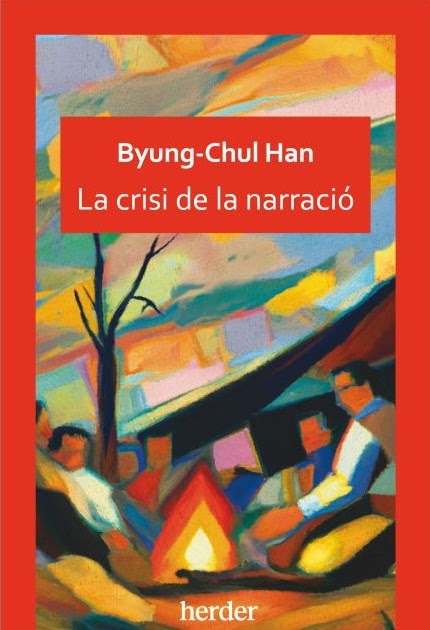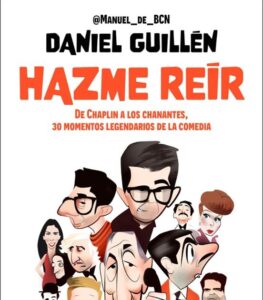
Original language: German
Original title: The crisis of narrative
Translation: David Torres in Catalan and Alberto Ciria in Spanish for Herder Editorial
Year of publication: 2023
Valuation: advisable
Those who have minimally followed the professional and literary career of the South Korean philosopher will have noticed that he focuses his reflection and discourse on current society and the loss of values, not only in a personal and individual sense but also in a collective sense. In this case, the author addresses the narrative crisis, not in regard to the literary theme but in the discursive aspect of each of us.
The author states that “memory is not a mechanical repetition of what has been experienced, but rather a narrative that must continually be explained again. Memories necessarily have gaps (…); when everything experienced (…) is available, the memory disappears (…) Whoever wants to narrate or remember has to be able to forget or omit many things. The society of transparency means the end of narration and memory” and supports this thesis by stating that “it is narration that elevates life above mere facticity, above its nakedness. Narrating consists of making the passage of time make sense, it consists of giving time a beginning and an end. Without narrative, life is merely additive.
With this book the author invites us to reflect and challenges us by stating that “we should be aware that, deep down, thinking is nothing other than narrating, and that thought advances with narrative steps.” Thus, we have to reclaim the power of storytelling, and not let the storytelling become a storyselling that locks us in ourselves, limiting us to other worlds, other narratives, other ways of life.
Source: https://unlibroaldia.blogspot.com/2024/12/byung-chul-han-la-crisis-de-la-narracion.html


